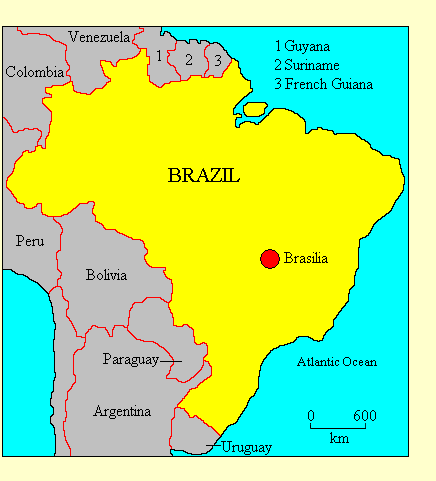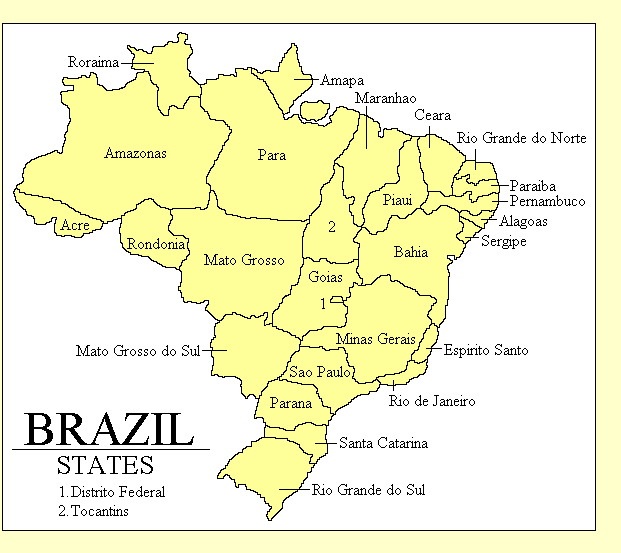
FEDERAL REPUBLIC OF BRAZIL• Official name: Republica Federativa do Brasil (Federal Republic of Brazil)
• Legislature: The National Congress (Congresso Nacional) is a bicameral legislature. The lower house is the Chamber of Deputies, which has 513 members elected by proportional representation from the states for four-year terms. The upper house is the Federal Senate, which has 81 members (three from each state and the federal district) elected for eight-year terms. • Electoral authority: The Superior Electoral Tribunal controls national elections. • Freedom House 2011 rating: Political Rights 3, Civil Liberties 3 • Transparency International Corruption Index: 37% (69 of 178 countries rated) • Reporters Without Borders Press Freedom 2010 Index: 83.4% (58 of 178 countries rated) • Heritage Foundation Economic Freedom 2010 Index: 56.3% (113 of 179 countries rated) Political historyBrazil was a Portuguese colony from 1533 until it declared its independence in 1822. After 67 years as a
monarchy it became a republic in 1889. Although constitutional government and a facade of democracy were
established, Brazil was ruled by a small oligarchy of landowners. From 1930 to 1945 Getulio Vargas presided
over a semi-fascist regime. After 1946 a more genuine democracy was established, but in 1965 President Joao
Goulart was overthrown in a coup. From 1965 to 1985 Brazil was ruled by a military regime.
|
Brazil has a vigorous multi-party system. The most important political parties are President Rousseff's Workers' Party (PT) (which is more populist than socialist), the centrist Party of the Brazilian Democratic Movement (PMDB), and former President Cardoso's Brazilian Social-Democratic Party (PSDB), which despite its name is a party of free-market liberals. Other parties on the left are the Brazilian Labour Party , the Brazilian Socialist Party, the Democratic Labour Party, the Socialist People's Party and the Communist Party of Brazil. On the right are the mainstream conservative Democrats and Party of the Republic, and the far-right Brazilian Progressive Party.
Freedom House's 2011 report on Brazil says: "Brazil is an electoral democracy. The 2010 national elections were free and fair... Corruption is an endemic problem in Brazil... The constitution guarantees freedom of expression, and both libel and slander were decriminalized in 2009... The country's largely independent judiciary is overburdened, plagued by corruption, and virtually powerless in the face of organized crime. The judiciary is often subject to intimidation and other external influences, especially in rural areas, and public complaints over its inefficiency are frequent... Brazil's police are among the world's most violent and corrupt, and public security remains a serious problem."
Updated October 2011

